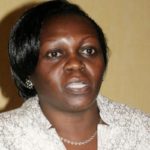UNAIDS is alarmed that fighting between government forces and rebels in the east of the Democratic Republic of Congo is causing serious disruption and harm to treatment, prevention and care services for people living with and affected by HIV.
In the health zones of Rutshuru and Rwanguba where some of the heaviest fightings has been reported, the AIDS Control Programme (PNLS) in North Kivu has registered 1155 people living with HIV currently on treatment including 102 pregnant women and 46 children. As the violence has escalated, large numbers of people have fled these areas in the past few days, most of them south towards Goma.
“I am extremely worried about the health and well-being of people living with and affected by HIV both in the areas affected by the fighting and in communities hosting those who have been displaced. People may have had to leave their homes at a moment’s notice without time to pick up essential medicines,” said UNAIDS country director, Susan Kasedde.
“I am especially concerned about the situation of pregnant and breastfeeding mothers living with HIV and their babies. The interruption to treatment for these mothers will have catastrophic implications for their infants. It is a race against time and we must do everything possible to find these women urgently and link them to care,” she said.
UNAIDS is working closely with national HIV programme managers, civil society groups, community organizations and all partners to support an emergency response to the current situation.
UNAIDS and its partners are verifying the numbers of people living with HIV currently on treatment to inform needs and planning going forward in the affected communities of Rutshuru and Rwanguba and in the host communities, Conducting an assessment with humanitarian partners to enable the integration of HIV-related services into the joint response.
They are also rebuilding community support networks by contacting focal points of civil society organizations, community organizations such as mentor mothers, and service providers to establish a network with the capacity to help track and trace people living with HIV and to support the continuity of HIV services for them, including psycho-social services for victims of gender-based violence, and nutritional support to enable HIV treatment to be taken.








